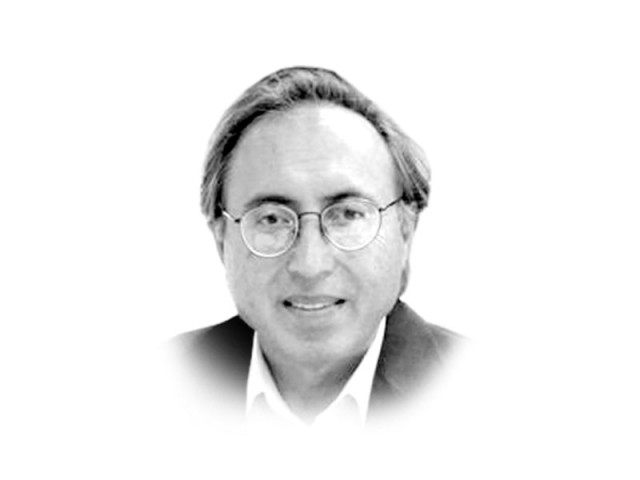Quest for civilian supremacy
Under no circumstances should the security establishment set the security or foreign policy priorities of the country.

The writer is a security and political analyst and works at the Institute of Strategic Studies, Islamabad
In today’s Pakistan, there are more complex reasons for debating the appointment of the new army chief. The first and foremost among them is the challenge of establishing civilian supremacy — actually the supremacy of the democratic government. Pakistan is going through the fourth democratic transition since the 2008 elections — the democratic transition is still in process and is unfinished business. The good news is that major political parties have reached a consensus on the democratic destiny of the country and, so far, the journey toward this destination has been uninterrupted. But that is not the whole story. The bad news is that while General Ashfaq Parvez Kayani didn’t intervene directly and resisted advice and temptation to topple the government, he pursued parallel foreign and security policies on the most important problems — insurgency in Balochistan and Fata, and relations with Afghanistan, India and the United States. Yes, there was a consultation process with the civilian government but it was a one-way briefing and for soliciting a nod for the choices the security establishment had made. On many issues, from drone strikes to security cooperation with the United States and covert support to the Afghan Taliban, there has hardly been any transparency.
A new pattern in civil-military relations has emerged, which may be termed the Kayani doctrine. The doctrine is as follows: the civilian government has every power under the Constitution, except on defence and national security. The military establishment will make all the critical choices on counterterrorism strategy, draw the central line on relations with Afghanistan and India, and deal with the United States on bilateral and regional security matters. The last civilian government of Asif Ali Zardari got a lot of presentations and briefings on these issues but had no real choice to make. That is not what a democratic transition would mean. At best it is work half-done, at worst it leaves elected governments in an embarrassing national and international situation. Whenever our civilian governments have made some bold moves towards Afghanistan and India, they have confronted the uncomfortable question: is your security establishment with you?
With the new army chief appointed, there is a fresh opportunity to consolidate, strengthen and regain full power under the Constitution by the civilian government. With a divided house — between the security establishment and the civilian government — Pakistan will remain weak, untrustworthy and vulnerable to foreign manipulations. Under no circumstances should the security establishment set the security or foreign policy priorities of the country. It must be meaningfully consulted and its views given due consideration but never a veto power. It is the prerogative of the political executive to frame all policies.
There is a consensus across the political divide in Pakistan on having the best of relations with India, non-intervention in Afghanistan and transparency in our relations with the United States. This has been, and will be, the key challenge in civil-military relations in Pakistan. It is time to assert the civilian view.
Published in The Express Tribune, December 2nd, 2013.
Like Opinion & Editorial on Facebook, follow @ETOpEd on Twitter to receive all updates on all our daily pieces.















COMMENTS
Comments are moderated and generally will be posted if they are on-topic and not abusive.
For more information, please see our Comments FAQ